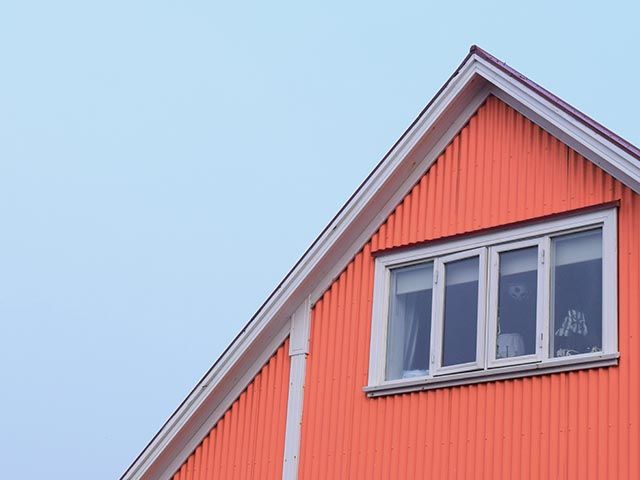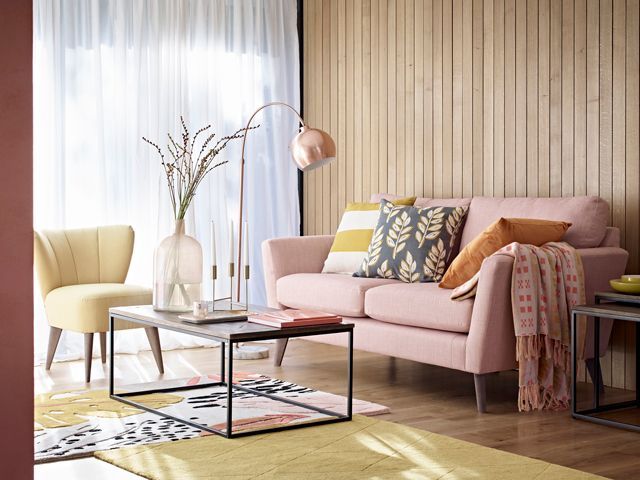
The Home Genie’s tips to improve your mental health at home
This study reveals what’s affecting your mental health at home, and what you can do to improve it.

Image: Marks and Spencer SS19
A recent survey carried out by the HomeOwners Alliance and Resi.co.uk, polling over 2,000 UK adults online, has revealed what the key factors are in promoting mental wellbeing and happiness at home:
- A well-maintained outside space (58%)
- Feeling safe with well secured locks (57%)
- Nice neighbours (55%),
- Good natural light/ large windows (53%)
- A lack of night-time disturbances (52%)
- An organised, tidyspace (44%)
- Low noise pollution (38%)
- Plenty of storage (37%).
Georgina Burnett, better known as The Home Genie, is one of the many people whose mental health has been impacted by their home. After suffering post-partum depression, Georgina found that the various shades of grey that she’d originally picked out for her home renovation project were actually contributing to her low mood. She therefore changed it up by introducing more colour throughout her home – yellow in the kitchen, fuchsia in the bedroom and orange and teal in the lounge.
However, it’s not just colour that you can change in your home to positively affect your mental health. Here’s some advice from Resi.co.uk and Georgina herself on ways you can improve your home to help get your mental health back on track.
Clutter
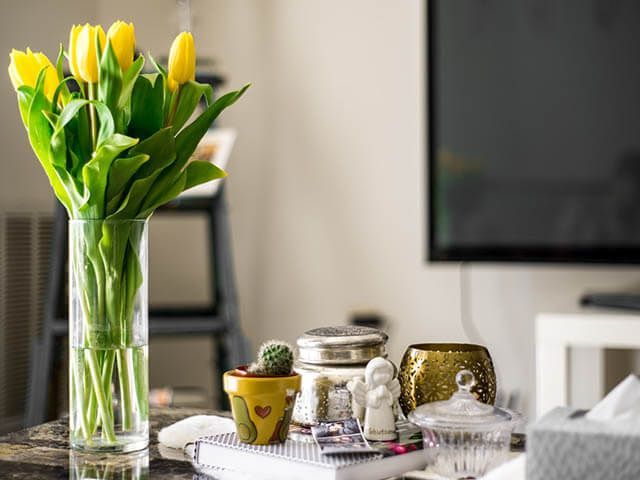
Image: Mitchell Griest, Unsplash
A cluttered room means a cluttered mind. This is because the brain is constantly processing what it sees and, although we may not be conscious of it, a messy room triggers negative thoughts that will affect your mood. So, make sure you get rid of the things you don’t love or need, so that the things that you do really shine through.
Light
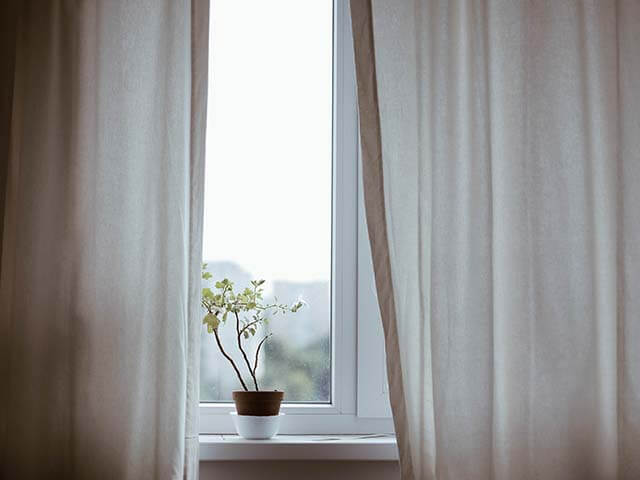
Image: Eduard Militaru, Unsplash
Healthy exposure to natural light is key to wellbeing as it helps to maintain your body’s circadian rhythm (the internal process that regulates the sleep-wake cycle).
In order to maximise your exposure to natural light, make sure you strip away net curtains and not have your sofa facing away from the window. In fact, reduce anything you have around the window to let the light flood in.
In north facing rooms, you can add daylight or SAD (Seasonally Affected Disorder) light bulbs to give the effect of being outside.
However, while it’s important to increase light in your home, it’s just as important to have ways to shut it out when it’s time for bed. At night you need complete darkness to sleep properly – so invest in some well-made blackout blinds.
Colour
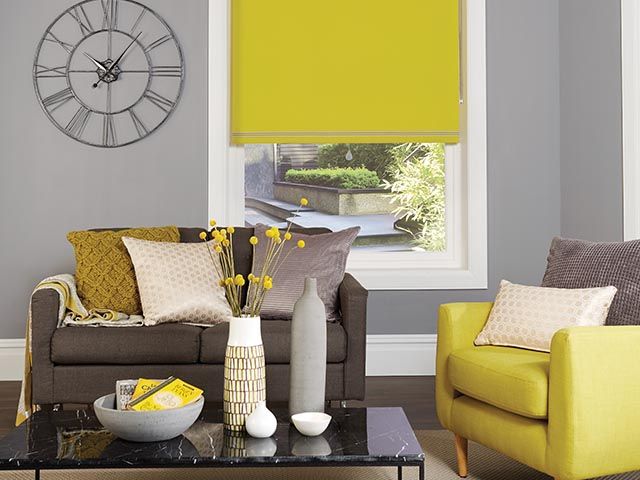
Image: English Blinds
The Home Genie says before deciding on the colours for your home, you need to assess how different colours make you feel. The impact is different for each individual and may also change over time. Yellow, for example, makes some people happy, but for others it can evoke feelings of anxiousness and depression.
It also makes sense to work out how you want each room to make you feel. For example, if you need to relax in your living room, you don’t want to plaster the walls with colours that fire you up. Georgina has demonstrated this effect by using a heart rate monitor on her clients while showing them colour cards.
Personalise
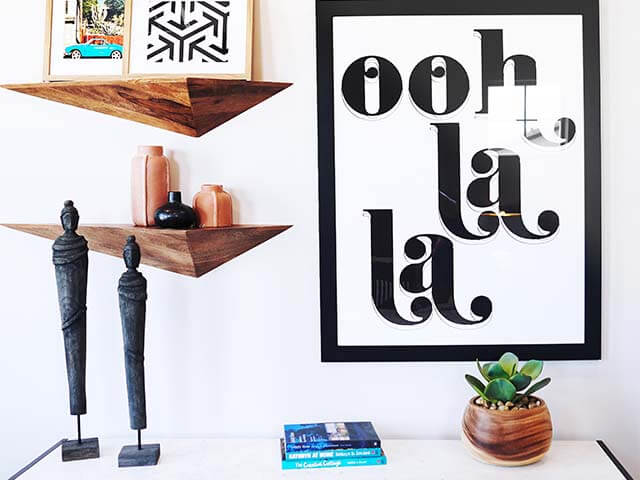
Image: Josh Hemsley, Unsplash
Identify what personal items make you feel good – family photographs, favourite books, artwork, and quirky souvenirs – and use them tactically to boost your mood. Also, make sure to move things around every so often, so that you see and appreciate your space afresh.
Greenery
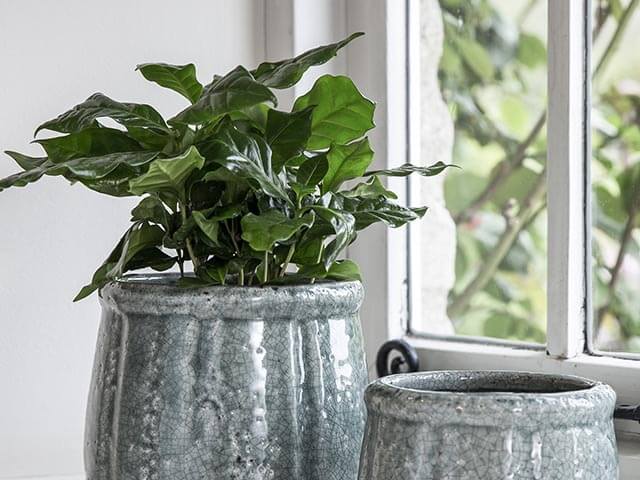
Image: Garden Trading
If you have a garden, then perennials are your best option as you don’t have to replant them each year. It’s also important to have evergreen plants so you don’t just look out onto bare twigs in winter, which will only make you feel glummer.
As the survey suggested, nature has the most profound effect on our mood. However, Georgina thinks that this doesn’t necessarily mean we need a perfect outdoor space. She believes, we can get just as many benefits with lots of houseplants. You can even benefit simply from the placebo effect of faux plants and artificial flowers if struggling to take care of real houseplants is having a negative effect on your mood.
Safety
Image: Josh Woodhead, Unsplash
Feeling safe in your home is key for your mental health. Replace old doors and add double glazed windows. They’ll not only provide security, but also help reduce outside noise and draughts, which were also highlighted as important factors in the study.
Another thing to consider is if you have any issues with neighbours. The best thing is to try and arrange a sit down to talk over any problems calmly. If this doesn’t resolve anything, the next step would to have authorities help mediate so you can all feel safe and relaxed at home.
What makes you happy at home? Tweet us @goodhomesmag or post a comment on our Facebook page.





